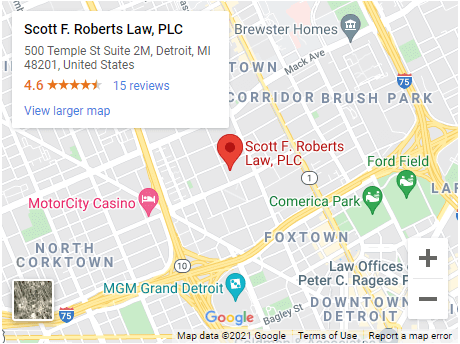On Thursday, October 6th, 2022, President Joseph R. Biden made history with one of the most important proclamations to ever occur in cannabis. The Proclamation included pardoning Simple Marijuana Possession Federal Offenders as well as a recommendation that states follow suit.
While it didn’t get as much attention in the news media as the pardons, the proclamation also addressed rescheduling cannabis. Specifically, Biden is calling on the Secretary of Health and Human Services to officially review how marijuana is scheduled under federal law. The president even went so far as to point out that fentanyl is scheduled as safer than marijuana – and that this fact makes “no sense”.
While many commentators have talked about descheduling, there wasn’t much talk about rescheduling going into this announcement. However, President Biden’s announcement on rescheduling is a BIG F#@KING DEAL for cannabis businesses. It has the potential to be the biggest change to ever happen to the U.S. cannabis industry, and in this article, we will explain why that is.
Why Rescheduling Matters for Marijuana Businesses
Schedule I
Currently, Marijuana is a Schedule I substance under the Controlled Substances Act of 1970, which means it has a high potential for abuse and no recognized medical use. This significantly hampers the use-case for cannabis, and is the largest roadblock for cannabis entrepreneurs in cannabis-legal states who want to improve their business.
It also means that IRS Code Section 280E applies to cannabis. §280 states:
“No deduction or credit shall be allowed for any amount paid or incurred during the taxable year in carrying on any trade or business if such trade or business (or the activities which comprise such trade or business) consists of trafficking in controlled substances (within the meaning of schedule I and II of the Controlled Substances Act) which is prohibited by Federal law or the law of any State in which such trade or business is conducted.”
What this means is that cannabis companies are prohibited from deducting ordinary business expenses from gross income if that income is associated with the “trafficking” of a Schedule I or Schedule II Controlled Substance. This is also why cannabis companies don’t actually make nearly as much money as most people believe they do.
Schedule II-V
Drugs in Schedule II-IV still have various degrees of regulatory control, but are able to be dispensed through prescription. Schedule V are drugs with low potential for abuse such as Robitussin. While marijuana being moved to Schedule II would not alleviate the severe tax burdens cannabis companies currently have, it would allow for medical research and testing, which would put a slow burn on eventual federal medicinal marijuana recognition and legislation.
The holy grail is for marijuana being moved to Schedule III, IV, or V. This would effectively lift draconian 280E tax burdens on cannabis companies. The effect of this is hard to understate. Most of the publicly traded cannabis companies that are not profitable under GAAP standards would instantly become profitable. Mom and pop single license cannabis companies that are currently struggling to get by could turn into profitable cash-flowing businesses overnight.
To illustrate further, I like to use a simple example. Let’s say we have a dispensary that makes $2M in revenue. You would think they are rolling in money, right? They likely are not. First, half of the revenue typically goes to costs of goods sold—mainly purchasing the cannabis and cannabis products for resale to the customer. That leaves $1M in gross profit.
Now, let’s assume the company pays about $100,000 in rent, $500,000 to employees, including budtenders, security, managers, etc., and another $100,000 in various other costs, like accounting, insurance, and having an amazing cannabis business attorney. That would leave a $300,000 profit, right? Wrong. Because of 280E, this dispensary is taxed as if it made $1,000,000, not $300,000. So it’s tax bill may be right around $300,000, which also means this dispensary made ZERO profit for the year after it paid taxes because of 280E.
But before we all get too excited, it is important to see the hurdles ahead for getting to this promised land.
The ADMINISTRATIVE Rescheduling Route
Currently, rescheduling is a process statutorily controlled by the DEA. In order to move a substance through CSA scheduling:
- The DEA must seek an opinion from the Secretary of Health and Human Services (HHS), which is what Biden stated he would do.
- The HHS Secretary then petitions the Attorney General (AG), who supervises the DEA, for a rescheduling order, which Biden’s proclamation alluded to.
- The AG then forwards the request back to the HHS Secretary to authorize a scientific and medical evaluation of the substance, along with a recommendation in a timely manner. This process is done via the FDA pursuant to 23 USC 811(b-c).
- The AG will often run a parallel request through the DEA and compares both findings consecutively
ROADBLOCK: Medical evaluation requires medical research (double-blind studies), which are hard to come by because of the Schedule I nature of cannabis. This is why Congress consistently finds rescheduling marijuana a pipedream.
- Upon the findings, the AG will act to either stay the scheduling, reschedule marijuana, or remove it from scheduling altogether
UNINTENDED OUTCOME: If Marijuana is moved to Schedule II-IV, it may complicate distribution in recreational states, because Marijuana will federally be recognized as a prescription medication (aka doctor’s visits), which will restrain the recreational adult-use market for obvious reasons. However, since it’s currently illegal under federal law anyways, this may not be as much of a roadblock as it first seems.
Cannabis: A Schedule III Future?
President Biden stated on his twitter that he wants his administration to review marijuana rescheduling. While there is no guarantee this will happen in a timely manner, and also no guarantee it is simply rescheduled to Schedule II, many observers believe there is a future where cannabis becomes a Schedule III or lower drug with this proclamation. Indeed, it would be quite the rug pull by President Biden to announce rescheduling only to Schedule II.
Now, if the Attorney General, through the HHS Secretary, finds that appropriate marijuana scheduling is Schedule III or IV, then the Green Rush of the 2020s is back-on-track, because cannabis companies will be taxed like any other legitimate enterprise. All of a sudden, unprofitable companies become profitable overnight, and MSOs have additional money to invest.
The Silver Bullet
While Administrative chicanery provides prospective relief to cannabis businesses, the overwhelmingly easier option is simple: Congress.
Congress has the power of the pen to state that Cannabis is a decriminalized substance, the business of such which should be considered legal. Congress has already attempted, through the SAFE Banking Act and CAOA, to help codify cannabis legislation and keep the industry moving forward. This Congressional action can cure the tax disputes companies, banks, and insurers currently face, and additionally will settle the interstate commerce prohibitions that have mired the cannabis industry from finding its wings.
However, to be frank, Congress sucks. If we wait on Congress to act on rescheduling or descheduling, it could be years or even decades. Thus, the announcement by President Biden provides hope that this may come even sooner. And its clear the industry believes this may be the case—cannabis stocks jumped as much as 50% upon the President’s twitter announcement.
Until we know more, the cannabis industry will simply have to play wait and see. Nonetheless, it’s hard as a cannabis business owner or professional not to be excited by this announcement. Even if it simply gets rescheduled to Schedule II, it’s still a much needed and long-awaited step in the right direction.




